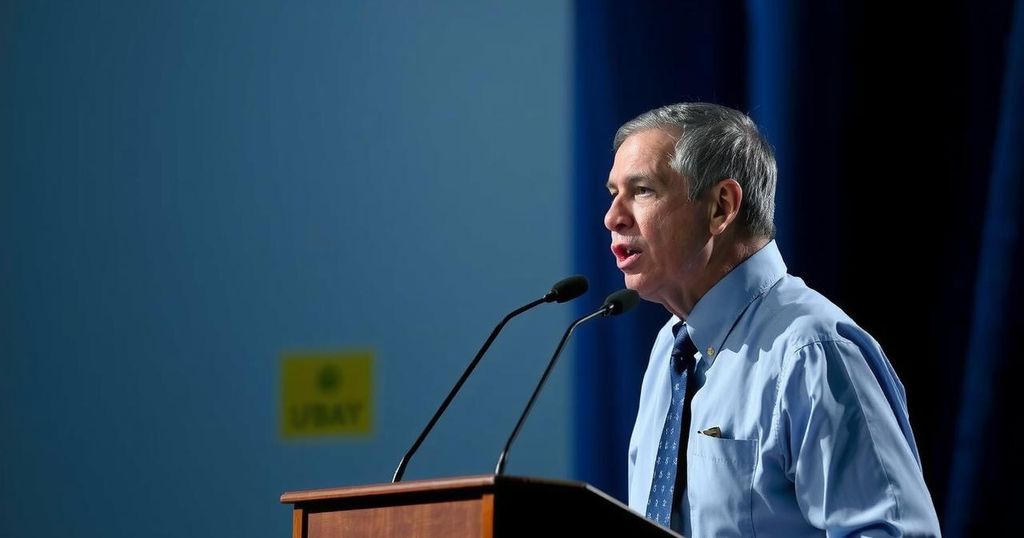Uruguay Prepares for Close Presidential Election Runoff
Uruguay faces a closely contested presidential runoff on Sunday, featuring candidates Yamandu Orsi and Alvaro Delgado. Polls indicate a very tight race, with under 25,000 votes potentially separating them. While both candidates are strategizing to win over undecided and minor party voters, the election is occurring in a politically stable environment, contrasting with movements in other South American countries. The final results are anticipated shortly after polls close.
Voters in Uruguay are preparing to participate in a closely contested second-round presidential election, which will culminate on Sunday. Candidates include the opposition center-left nominee Yamandu Orsi and continuity conservative Alvaro Delgado, who is supported by a third party. Polling suggests a tight race between candidates, with fewer than 25,000 votes likely separating them. The political overview in Uruguay remains comparatively stable, devoid of the sharp divides witnessed in other South American countries.
Orsi, representing the Broad Front, secured 43.9% of the votes in the initial round, while Delgado received 26.8% but enjoys the backing of the conservative Colorado Party. Both candidates are focusing on winning over voters from smaller parties and those who abstained in the first round. With neither coalition holding an absolute majority in the lower house, the outcome of this election could reshape Uruguay’s political landscape, although significant policy shifts are not anticipated.
Polling opens at 8 a.m. local time and closes at 7:30 p.m., with initial results expected shortly thereafter. With the nation’s economy performing robustly, analysts believe there may be a reluctance among voters for substantial political alterations as they approach the polls for final decisions.
Uruguay, home to a population of 3.4 million, is often recognized for its tranquil environment, marijuana legalization, and political stability. The upcoming presidential election is particularly significant as it occurs in a year marked by multiple elections across the continent. This election features a differentiation between the moderate political stances of its candidates, reflecting a contrast with the polarized political landscapes of neighboring countries such as Argentina and Brazil. Political context sees both Orsi and Delgado positioning themselves strategically to appeal not only to their respective bases but also to unaligned voters. The conservative coalition is particularly aiming to capitalize on the outgoing administration’s popularity, while Orsi is reassuring the electorate of a stable and moderate approach, despite his left-leaning affiliations. Economic factors, including inflation and living costs, are also influencing voter attitudes and decision-making in this election cycle.
The imminent presidential election in Uruguay is projected to be a tightly contested affair between candidates Yamandu Orsi and Alvaro Delgado. With polling indicating a very narrow margin, both candidates are aware of the importance of attracting undecided and minor party voters. While the overall political climate appears more moderate and less contentious than that of other South American nations, the outcome may still have significant implications for Uruguay’s governance and policy direction as it navigates ongoing economic challenges.
Original Source: www.ndtv.com




Post Comment